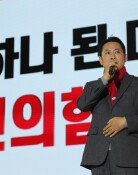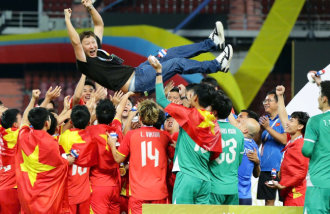[Opinion] Golf Ban Outcry
When Koreans shout, quickly, quickly, Filipinos say, manana, which means tomorrow. This shows how relaxed they are, leaving matters to unfold naturally tomorrow. In the late 1990s, President Fidel Ramos declared that he was going to transform the Philippines, then known as Asias donkey, into Asias tiger and even made the Promotion of National Awareness on Being Prompt Week. But the president was late to an appearance the very next day because he fell asleep watching the U.S. Masters Golf Tournament on TV at 4 a.m.
Then the Asian financial crisis exploded. There were various reasons given as to the cause of the crisis: it was a side effect of globalization; it was due to misguided economic policy and exclusion politics; growth-oriented policies disregarded poverty and the environment.
Britains Economist, however, summed up the cause in one word: golf. That is, the close relationship between the political and business circles and pitiful policies were all born on the golf course.
There is no use arguing that golf should also be regarded as a public sport. Golf still represents the status of power elites. For this reason, the recent statement by Deputy Prime Minister Kim Jin-pyo, Why say yes to hiking and no to golf? is borderline absurd.
This time, however, the entire government played roles in this golf comedy. On March 23, when the Korea Independent Commission against Corruption ordered a ban on state officials playing golf with any personnel related to their work after the so-called inappropriate round of golf played on the March 1 Independence Movement Day by former Prime Minister Lee Hae-chan led to his resignation. Secretary Kim Nam-shik of Cheong Wa Dae enjoyed a round of golf with executives of Hyundai Group on March 26 as if to sneer at this order. On the next day the presidents special advisor Lee Kang-chul accused the Independent Commission of making a decision without any regard to the running of state affairs.
The commission backtracked only five days after its announcement by saying what they meant by personnel related to work was just private citizens. This was, in actuality, a removal of the ban on golf.
People do not want to imagine that the government officials of the Roh administration which states its foundation of existence is its morals have in fact engaged in immoral activities on the golf course. However, the whole golf-banning incident shows exactly the shallowness of this government. Is it the state-affairs-inferred decision of the special advisor that said understanding of state affairs are needed even in golf, that led to setting up a restaurant right in front of Cheong Wa Dae? Also, what are we to expect of the Korea Independent Commission against Corruption which, right after boldly declaring its will to discipline the state officials, gave up so easily on it?
Kim Sun-deok, Editorial Writer, yuri@donga.com







